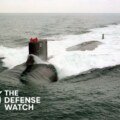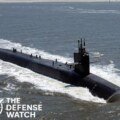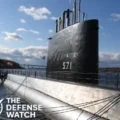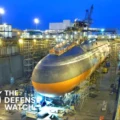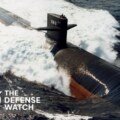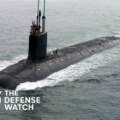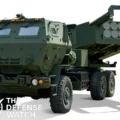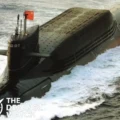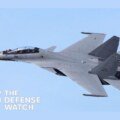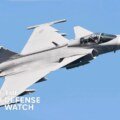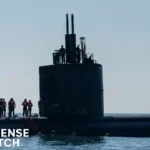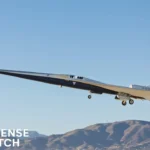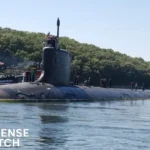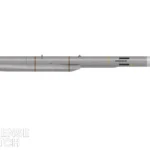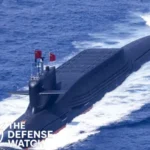- Home
- Catalog
- Submarines
- Columbia-Class Submarine (SSBN-826)
Columbia-Class Submarine (SSBN-826)
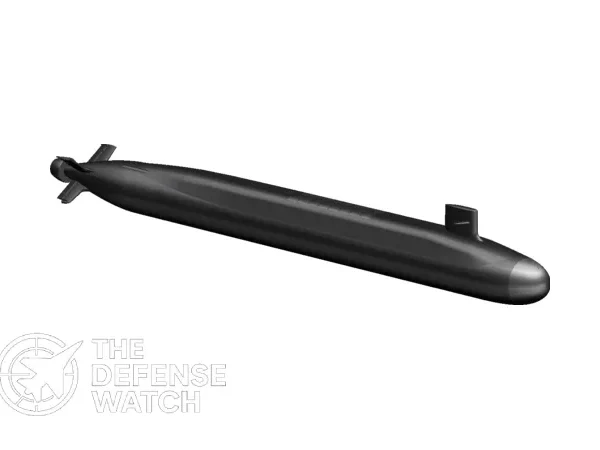
Full Specifications
1. General Information
| Name / Class | Columbia-Class SSBN (SSBN-826) |
| Country of Origin | United States |
| Type | Nuclear Ballistic Missile Submarine (SSBN) |
| Manufacturer | General Dynamics Electric Boat, HII |
| Operators | U.S. Navy |
| In Service | 2031 (Expected) |
| Status | Under Construction |
2. Dimensions & Design
| Length | 171 m (560 ft) |
| Beam (Width) | 13 m |
| Draught / Draft | 12 m |
| Displacement (Surfaced) | ~20,800 tons |
| Displacement (Submerged) | ~21,000 tons |
| Hull Material | HY-100 High-Strength Steel |
| Crew | Approx. 155 |
3. Propulsion & Performance
| Power Source | Life-of-Ship Nuclear Reactor |
| Engine / Reactor Type | S1B Pressurized Water Reactor (PWR) |
| Propulsion System | Electric Drive with Pump-Jet Propulsor |
| Speed (Surfaced) | 20 knots (estimated) |
| Speed (Submerged) | 25+ knots |
| Range | Unlimited (Nuclear) |
| Endurance | 90+ days submerged |
| Operational Depth | 300+ meters (approx. 1,000 ft) |
| Test Depth | ~490 meters |
| Maximum Depth | ~730 meters (estimated, classified) |
4. Armament
| Torpedo Tubes | 4 × 533 mm (optional defensive fit) |
| Torpedoes / Missiles | Mk-48 ADCAP torpedoes (defensive), Trident II D5LE SLBMs |
| Cruise / Ballistic Missiles | 16 × Trident II D5LE Submarine-Launched Ballistic Missiles |
| Mines | No dedicated mine-laying capability |
| Decoys / Countermeasures | Acoustic decoys, towed countermeasures |
5. Sensors & Electronics
| Sonar System | Bow, flank, and towed array sonar systems |
| Radar | Surface Search Radar (for navigation only) |
| Combat Management System | AN/BYG-1 Combat Management System |
| Electronic Warfare System | ESM/ECM Suite for threat detection and deception |
| Communication Systems | VLF, UHF, Satellite, and secure broadband links |
| Navigation Systems | Inertial Navigation + GPS |
6. Stealth & Defense
| Anechoic Coating | Yes – full-hull acoustic dampening tiles |
| Noise Reduction Features | Electric drive, isolated machinery, quiet pump-jet propulsion |
| Magnetic Signature Reduction | Integrated degaussing systems |
| Acoustic Signature Level | Extremely Low (classified) |
7. Payload & Capacity
| Weapons Payload | 16 Trident II D5LE missiles + decoys |
| Special Forces Accommodation | No (dedicated SSBN platform) |
| UUV / Drone Capability | Limited / Experimental (future upgrade potential) |
8. Notable Technologies
| Reactor / AIP Type | S1B Life-of-Ship Pressurized Water Reactor |
| Automation Level | Highly Automated Systems |
| Special Features | Electric Drive, Modular Hull, Advanced CMS, Reduced Crew Workload |
9. Operational History
| Major Deployments | Scheduled for Atlantic & Pacific deterrent patrols (post-2031) |
| Combat / Exercises | None yet – class under construction |
| Upgrades | Incremental modernization planned (2040s onward) |
10. Cost & Production
| Unit Cost | USD 9.4 Billion (approx.) |
| Number Built | 12 Planned |
| Production Period | 2021–2042 |
11. Media & Credits
| Reference Credit | Electric Boat |
PROS
- Advanced stealth and acoustic reduction technology
- Life-of-the-ship nuclear reactor (no refueling needed)
- Reduced crew workload through automation
- Enhanced communication and sensor suite
- Long operational lifespan (42 years)
CONS
- Extremely high development and unit cost
- Long construction timeline
- Limited to strategic nuclear missions
- Requires specialized infrastructure
- Dependent on Trident II modernization schedule
Columbia-Class SSBN: The Next-Generation U.S. Nuclear Deterrent
The Columbia-class (SSBN-826) represents the future backbone of the United States Navy’s strategic nuclear deterrent. Developed by General Dynamics Electric Boat in partnership with Huntington Ingalls Industries, this new class of ballistic missile submarines (SSBNs) will replace the aging Ohio-class fleet beginning in the 2030s. Designed for a 42-year service life with no need for refueling, the Columbia-class combines stealth, endurance, and advanced automation to sustain America’s undersea nuclear deterrence well into the 2080s.
Design and Capabilities
Each Columbia-class submarine will displace approximately 20,810 tons submerged and measure 560 feet in length, making it one of the largest submarines ever built by the U.S. Navy. Powered by a life-of-the-ship nuclear reactor (S1B), it offers nearly unlimited range and exceptional acoustic quieting, surpassing all previous U.S. SSBN designs.
The submarine carries 16 Trident II D5LE (Life Extension) ballistic missiles, each capable of delivering multiple independently targetable reentry vehicles (MIRVs). With upgraded sonar arrays, advanced electronic warfare systems, and cutting-edge communications, the Columbia-class ensures survivability in high-threat environments.
Automation significantly reduces crew workload, allowing a complement of 155 sailors to operate efficiently for extended deterrent patrols.
Strategic Importance
As the most critical leg of the U.S. nuclear triad, the Columbia-class will guarantee second-strike capability against any nuclear threat. With continuous at-sea deterrence (CASD) operations, it ensures America’s strategic stability through stealth and persistence.
Columbia-Class (SSBN-826) Price in United States
The Columbia-class submarine program is estimated at over $128 billion for 12 boats, with each unit costing approximately $9.4 billion. Though expensive, it represents the U.S. Navy’s single most vital investment in sustaining long-term nuclear deterrence.
Reviews
Disclaimer Note
The information provided on TheDefenseWatch.com is for general informational purposes only. While we strive to ensure the accuracy, completeness, and timeliness of our content regarding defense and aerospace products, technologies, and specifications, we cannot guarantee that all information is 100% accurate or up-to-date due to the evolving nature of military technology and classified data. TheDefenseWatch.com does not warrant the reliability, suitability, or availability of the information for any specific purpose. Users are advised to consult official sources, such as manufacturers, government publications, or defense agencies, for precise and verified data before making decisions based on our content. We are not affiliated with any defense manufacturers, governments, or military organizations mentioned. Opinions, reviews, and ratings reflect expert analysis but are subjective and should not be considered endorsements. TheDefenseWatch.com is not responsible for any errors, omissions, or consequences arising from the use of this website’s content. External links are provided for convenience and do not imply endorsement. TheDefenseWatch.com reserves the right to update or modify content without prior notice. By using this website, you agree to our Privacy & Cookies Policy.

